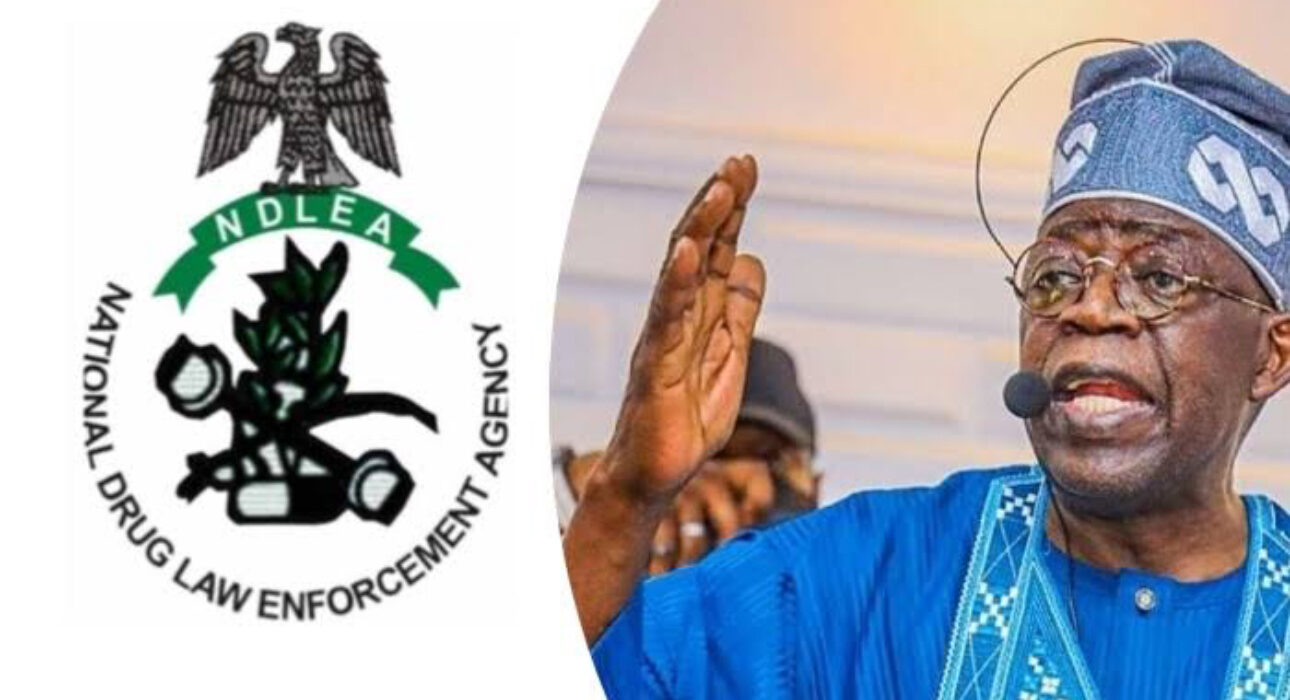Tinubu Withholds Assent to NDLEA Amendment Bill Over Constitutional Concerns

President Bola Ahmed Tinubu has formally declined to sign the National Drug Law Enforcement Agency (NDLEA) Amendment Bill 2025 into law, citing constitutional irregularities in its financial provisions. The development was disclosed during a plenary session of the House of Representatives on Wednesday, following a letter from the President notifying lawmakers of his decision.
At the core of President Tinubu’s objection is a controversial clause in the bill which proposed that the NDLEA should be allowed to retain a portion of the proceeds recovered from drug-related crimes for its operational funding. The President, however, argued that this provision conflicts with existing laws and constitutional guidelines governing public finance and the handling of forfeited assets.
According to Tinubu, such funds being the proceeds of crime are mandated by law to be deposited into the Confiscated and Forfeited Properties Account, a central treasury account. Any disbursement from this account, he noted, must be approved by the President, with the concurrence of the Federal Executive Council and the National Assembly.
“The bill as it stands would grant an agency of government unfettered access to public funds without the required oversight,” President Tinubu stated in the letter. He stressed the importance of maintaining checks and balances, especially in managing funds derived from criminal justice activities.
The NDLEA bill was intended to provide the anti-narcotics agency with greater autonomy, particularly in financing its operations, given its expanding mandate in tackling drug trafficking and abuse. Proponents of the bill had argued that the agency often faces bureaucratic hurdles and delays in accessing budgeted funds, and allowing it to retain part of recovered proceeds would ensure more efficient operations.
However, legal and governance experts have backed the President’s decision, warning that bypassing constitutional oversight in public spending could set a dangerous precedent. They emphasized that while the agency’s need for funding is valid, financial discipline and accountability must not be sacrificed.
The NDLEA bill is the second piece of legislation President Tinubu has rejected this week, following his earlier decision to withhold assent from the National Assembly Library Trust Fund (Establishment) Bill over similar constitutional concerns.
With the President’s rejection now official, the National Assembly faces a critical decision: either to amend the bill in line with Tinubu’s objections and resubmit it for assent, or to attempt a veto override a process that would require a two-thirds majority vote in both chambers.
As the matter returns to the legislative floor, the future of NDLEA’s financial autonomy remains uncertain. However, the debate has reignited broader discussions about the balance between institutional independence and constitutional safeguards in Nigeria’s governance system.









